Can a bad battery cause acceleration issues – Here’s How!
Yes, a bad battery can cause acceleration issues. While most people think of a battery only as a way to start the car, it actually plays a much bigger role in your vehicle’s performance.
The battery provides power to all electrical systems, including the engine’s control unit, which manages functions like fuel delivery and ignition. When the battery is weak, it can reduce the voltage supplied to these systems, causing sluggish acceleration, hesitation, or even stalling.
Introduction: Understanding the Connection Between Your Battery and Vehicle Performance
Your car’s battery may seem like a humble component, but it plays a critical role in your vehicle’s overall performance. While many drivers associate battery problems solely with the car’s ability to start, the ripple effects of a failing battery extend far beyond ignition.
A weak or deteriorating battery can affect acceleration, disrupt engine functions, and lead to unpredictable driving behavior.
Understanding how the battery interrelates with various vehicle systems will empower you to diagnose performance issues with greater clarity and address them before they escalate.
How a Car Battery Affects Vehicle Functionality:
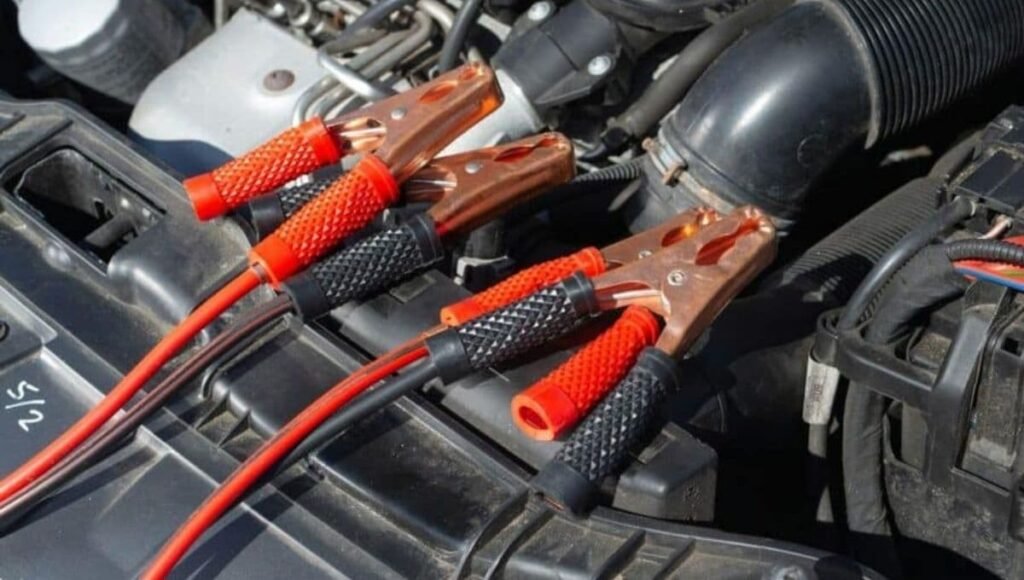
The Role of the Car Battery in Powering Electrical Systems:
At its core, the car battery’s primary responsibility is to store electrical energy and deliver it to essential components when the engine isn’t running.
It powers the ignition system, starter motor, and all electronic accessories, from headlights to power windows. Without this initial jolt of electricity, the engine simply won’t start.
But the battery’s work doesn’t end once the vehicle is running. Even as the alternator takes over the job of providing power, the battery continues to stabilize voltage and supply energy to onboard electronics.
How Modern Vehicles Rely on Electronic Components for Optimal Performance:
In today’s automotive landscape, vehicles have become rolling computers. From engine management systems to advanced driver assistance features, everything depends on a seamless flow of electricity.
The engine control unit (ECU), often referred to as the brain of the car, continually processes data and adjusts systems in real time.
This level of integration means that any disruption in electrical power, even something as subtle as a weakening battery, can trigger a chain reaction of issues that manifest in unpredictable ways, including sluggish acceleration.
Importance of a Fully Functional Battery for Smooth Driving:
A strong, fully charged battery ensures that your car performs at its best. It keeps all systems running efficiently, maintains power to critical components, and helps the vehicle respond promptly when you press the gas pedal.
The moment the battery starts to fail, the engine may not receive the power it needs to operate smoothly, potentially leading to slow acceleration, misfires, or even stalling. Thus, the state of your battery is integral to a smooth and reliable driving experience.
read also: Can a Bad Battery Cause No Bus Code – Discover the Answer!
Symptoms of a Weak or Failing Battery:
Recognizing Early Signs of Battery Trouble: Dim Lights, Slow Engine Start
The most obvious symptom of a failing battery is difficulty starting the car. If you notice your engine cranking slower than usual, or if your headlights appear dim even when the engine is running, these are telltale signs that the battery is weakening.
Dash lights that flicker or fade, especially when using other accessories like the radio or air conditioning, can also point to battery trouble. Early intervention at this stage can prevent further issues.
Common Misconceptions: Is It Really the Battery?
One of the most common misconceptions among drivers is mistaking other electrical problems for battery failure. For instance, alternator issues or a faulty starter can mimic the symptoms of a dead battery.
Additionally, problems like corroded battery terminals or a loose connection may lead to poor electrical performance, even when the battery itself is healthy. It’s crucial to rule out these potential culprits before jumping to conclusions.
How a Weak Battery Impacts Your Vehicle’s Overall Behavior:
A battery that’s on its last legs can lead to erratic vehicle behavior. You might experience intermittent power losses, dim dashboard lights, and sluggish performance, especially during acceleration.
These symptoms are exacerbated when additional strain is placed on the electrical system, such as when using the air conditioner, headlights, or infotainment systems.
Over time, what begins as a mild inconvenience can snowball into significant performance problems if the underlying battery issue isn’t addressed.
Can a Bad Battery Cause Acceleration Problems?
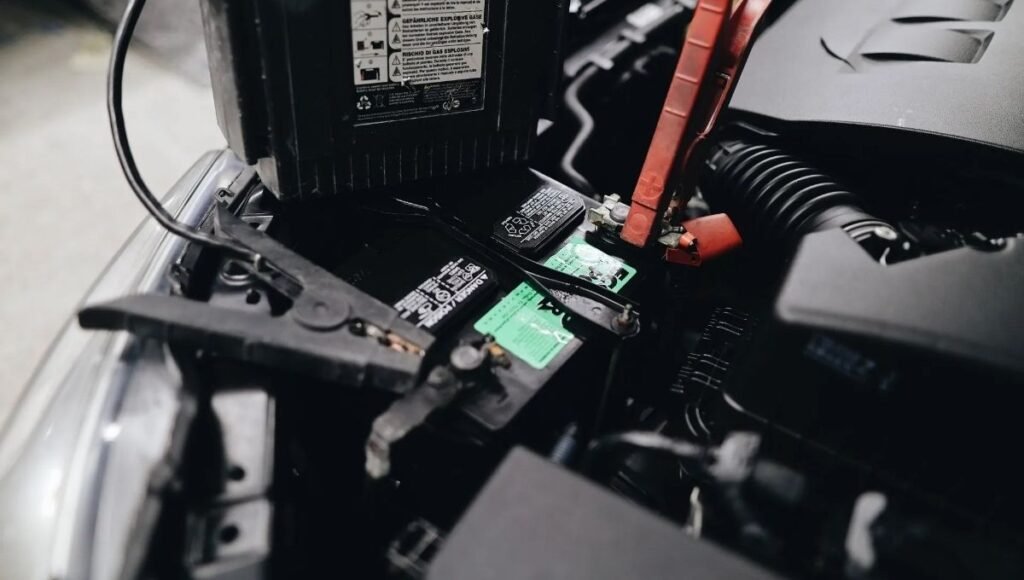
Exploring the Connection: Is Your Engine’s Power Tied to Battery Health?
It might seem counterintuitive, but yes, a bad battery can indeed cause acceleration problems. Your vehicle’s engine relies on a consistent flow of power to fuel its performance.
The battery, especially in modern vehicles, helps regulate power delivery to critical systems. When the battery begins to fail, it can disrupt the smooth operation of these systems, leading to poor acceleration and an overall reduction in engine power.
How a Failing Battery Disrupts Acceleration:
Acceleration requires the engine to work harder, and when the battery is failing, the engine may not receive the power it needs to meet your demands.
This can result in sluggish or delayed acceleration, as the electronic control systems that manage fuel and air intake struggle to compensate for the reduced voltage. In extreme cases, a failing battery can even cause the engine to stall under heavy acceleration.
Real-Life Scenarios Where Battery Issues Lead to Sluggish Driving:
Imagine merging onto a highway and noticing that your car hesitates when you press the gas pedal. Or, perhaps, you’re driving uphill and find that your car lacks the usual power.
These real-life scenarios can occur when the battery is unable to provide adequate power to the vehicle’s systems, resulting in a noticeable dip in acceleration. Many drivers may mistake this for engine trouble, but in reality, the battery could be the hidden culprit.
read also: Does auto headlights drain battery – How to Stop It!
The Science Behind Battery-Induced Acceleration Issues:
Understanding Voltage Drops and Their Impact on Engine Control Units (ECUs):
A healthy battery provides the necessary voltage to the vehicle’s systems. However, when a battery begins to fail, voltage drops occur, and this can significantly impact the performance of the ECU.
The ECU relies on stable voltage to manage everything from fuel injection to timing. Any fluctuations in voltage can throw these systems out of balance, leading to performance issues such as poor acceleration.
How Low Battery Voltage Affects Fuel Injection and Ignition Systems:
The fuel injection system and ignition rely heavily on the ECU’s signals. When voltage drops, these signals can become erratic, leading to improper fuel delivery and misfires.
This results in inefficient combustion, which directly impacts how quickly and smoothly your car accelerates. You might find yourself pressing the accelerator harder, only to receive a lackluster response from the engine.
Explaining Why Modern Vehicles Are More Susceptible to Battery-Related Performance Problems:
Modern cars are packed with electronics, and this makes them far more sensitive to battery health than older models. Advanced systems such as electronic fuel injection, drive-by-wire throttles, and sophisticated sensors are all dependent on a steady electrical supply.
Any disruption caused by a weak or failing battery can trigger a series of malfunctions, including performance issues that didn’t exist in simpler, mechanically driven vehicles of the past.
When to Blame the Battery and When to Look Elsewhere:
Differentiating Between Battery Issues and Other Potential Causes of Poor Acceleration:
While a bad battery can cause acceleration issues, it’s not always the sole culprit. Poor acceleration can also stem from problems with the fuel system, clogged air filters, or a faulty transmission.
Understanding when to blame the battery requires careful diagnosis. If your car is showing multiple signs of electrical failure, such as dimming lights and difficulty starting, the battery is a likely suspect. However, if poor acceleration is the only symptom, it may be worth investigating other mechanical components.
Signs That Point to Transmission, Fuel System, or Spark Plug Problems:
Sometimes, acceleration issues are caused by worn spark plugs, a clogged fuel filter, or transmission problems. If your vehicle hesitates or jerks during acceleration but shows no signs of electrical malfunction, these areas should be inspected.
Pay close attention to how your car behaves in different driving conditions, as this can help pinpoint the source of the problem.
When Should You Replace the Battery Versus Investigating Other Parts?
If your vehicle struggles to start, shows intermittent electrical issues, or displays dashboard warning lights, the battery is likely the issue.
However, if the battery has been recently replaced and the problem persists, it’s time to investigate other areas, such as the alternator or starter motor.
A mechanic can perform a load test on the battery to determine if it’s holding a charge, ensuring that you replace it only when necessary.
Preventive Measures: Maintaining Your Battery for Optimal Performance
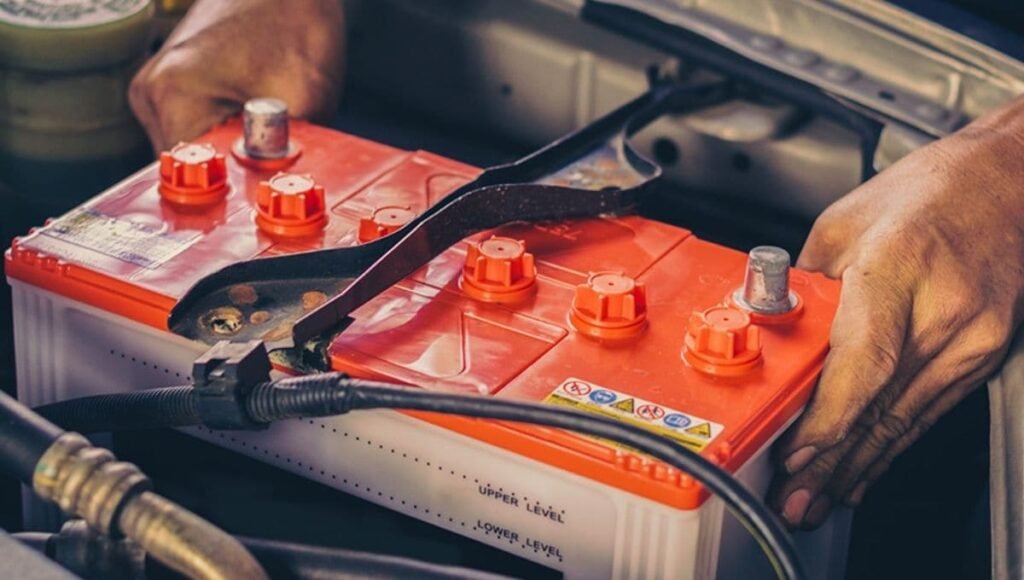
Best Practices for Extending Battery Life and Avoiding Performance Dips:
To keep your battery healthy, it’s essential to avoid excessive electrical load when the engine is off. Simple practices like turning off lights and accessories before shutting down the vehicle can prolong battery life.
Regularly checking battery terminals for corrosion and ensuring a snug connection can also prevent sudden failures. If your car sits unused for long periods, consider using a trickle charger to keep the battery in good condition.
How to Spot and Address Battery Problems Before They Cause Major Issues:
Routine inspections can help spot potential battery issues before they escalate. Look for corrosion around the terminals and clean it off as soon as it appears.
If your car is slow to start or if the battery is older than three years, have it tested by a professional. Addressing these early signs can save you from dealing with performance problems down the road.
The Role of Regular Maintenance in Ensuring Smooth Vehicle Acceleration:
Regular maintenance is key to ensuring that all components of your vehicle, including the battery, perform optimally. This includes routine battery checks, ensuring the alternator is charging properly, and keeping up with general engine maintenance.
By taking a proactive approach to vehicle care, you can minimize the risk of battery-related acceleration problems and enjoy a smoother driving experience.
read also: Can a bad RV converter drain the battery – Check the Converter!
FAQ’s
1. Can a bad battery cause acceleration issues?
Yes, a bad battery can cause acceleration issues by disrupting power delivery to critical vehicle systems, leading to sluggish performance.
2. How does a weak battery affect a car’s overall functionality?
A weak battery can lead to erratic electrical behavior, slow engine starts, dim lights, and reduced performance, especially during acceleration.
3. What are the signs of a failing battery?
Common signs include dim headlights, slow engine cranking, flickering dashboard lights, and intermittent electrical issues.
4. How does low battery voltage impact engine performance?
Low battery voltage can cause voltage drops that affect the engine control unit (ECU), leading to improper fuel injection, misfires, and slow acceleration.
5. When should I replace my car battery?
You should replace your battery when it struggles to start the engine, shows signs of weakening, or if it’s older than three years and causing performance issues.
Conclusion:
Your vehicle’s battery is much more than a simple power source for starting the engine. It plays a vital role in the overall performance of the vehicle, especially in modern cars where electronic systems are deeply intertwined with driving dynamics. By understanding the signs of a failing battery, how it impacts acceleration, and the importance of maintenance, you can take charge of your car’s health and prevent small issues from turning into major headaches. Keep your battery in top condition, and your car will reward you with reliable performance and smooth acceleration every time you hit the road.
Read Also:
Can a Bad Battery Cause Stuttering – Find Out Why!
Do Mercedes Batteries Have to be Coded – Must Know Facts!
Does Accessory Mode Drain Car Battery – Tips to Avoid a Dead Battery!
Will a Car Alternator Charge a Deep Cycle Battery – Find Out!
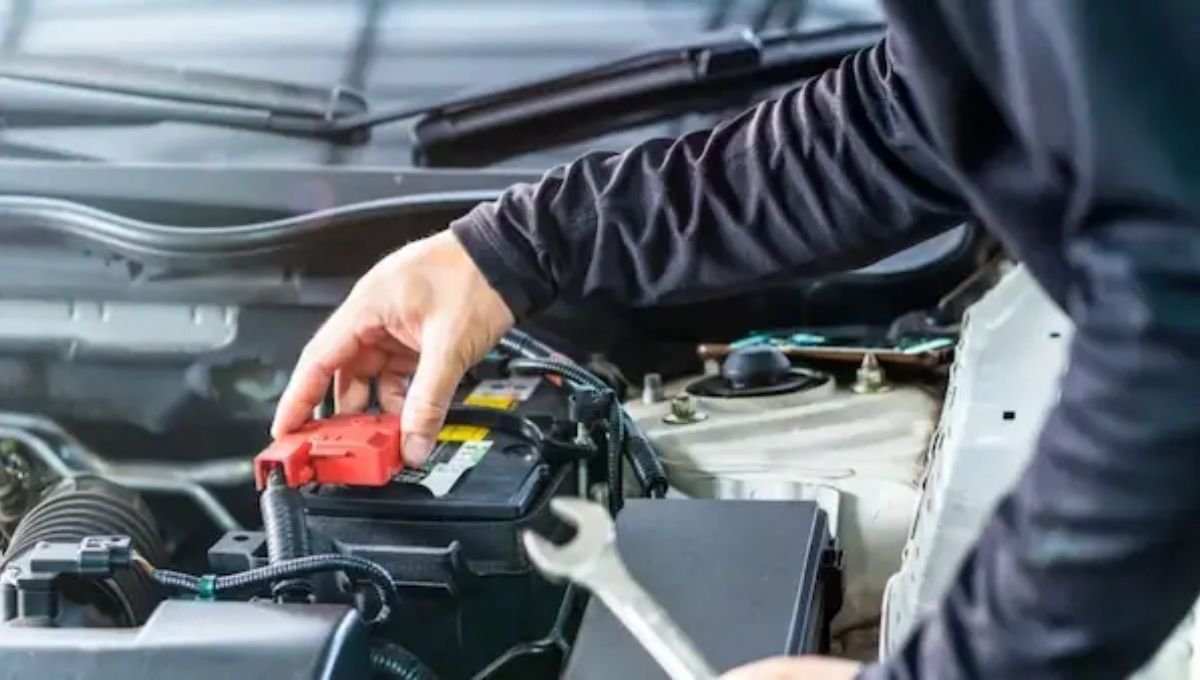

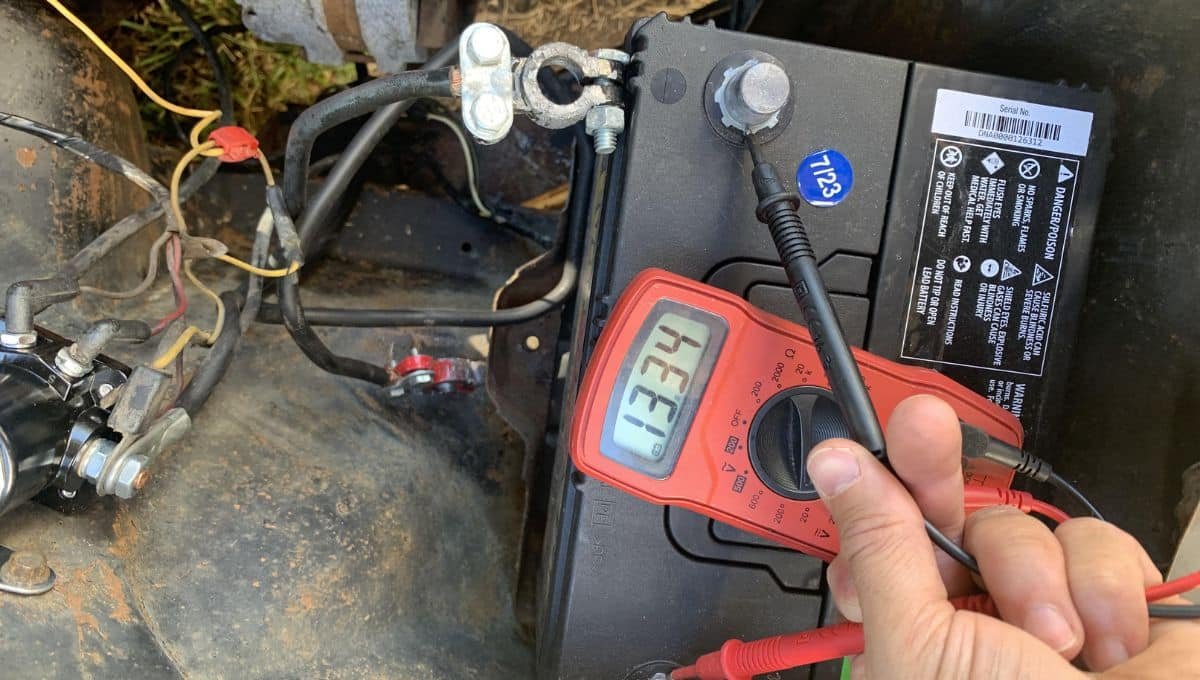


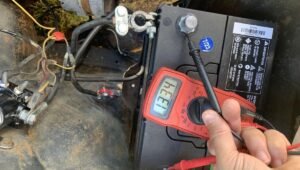





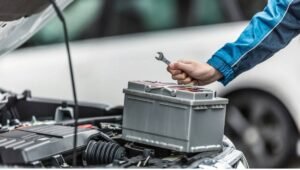

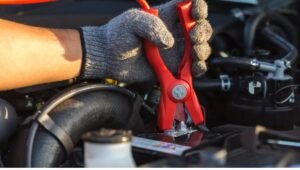
Post Comment